Jiun-Long Huang
GCC: Generative Color Constancy via Diffusing a Color Checker
Feb 24, 2025Abstract:Color constancy methods often struggle to generalize across different camera sensors due to varying spectral sensitivities. We present GCC, which leverages diffusion models to inpaint color checkers into images for illumination estimation. Our key innovations include (1) a single-step deterministic inference approach that inpaints color checkers reflecting scene illumination, (2) a Laplacian decomposition technique that preserves checker structure while allowing illumination-dependent color adaptation, and (3) a mask-based data augmentation strategy for handling imprecise color checker annotations. GCC demonstrates superior robustness in cross-camera scenarios, achieving state-of-the-art worst-25% error rates of 5.15{\deg} and 4.32{\deg} in bi-directional evaluations. These results highlight our method's stability and generalization capability across different camera characteristics without requiring sensor-specific training, making it a versatile solution for real-world applications.
SpectroMotion: Dynamic 3D Reconstruction of Specular Scenes
Oct 22, 2024Abstract:We present SpectroMotion, a novel approach that combines 3D Gaussian Splatting (3DGS) with physically-based rendering (PBR) and deformation fields to reconstruct dynamic specular scenes. Previous methods extending 3DGS to model dynamic scenes have struggled to accurately represent specular surfaces. Our method addresses this limitation by introducing a residual correction technique for accurate surface normal computation during deformation, complemented by a deformable environment map that adapts to time-varying lighting conditions. We implement a coarse-to-fine training strategy that significantly enhances both scene geometry and specular color prediction. We demonstrate that our model outperforms prior methods for view synthesis of scenes containing dynamic specular objects and that it is the only existing 3DGS method capable of synthesizing photorealistic real-world dynamic specular scenes, outperforming state-of-the-art methods in rendering complex, dynamic, and specular scenes.
Live Multi-Streaming and Donation Recommendations via Coupled Donation-Response Tensor Factorization
Oct 05, 2021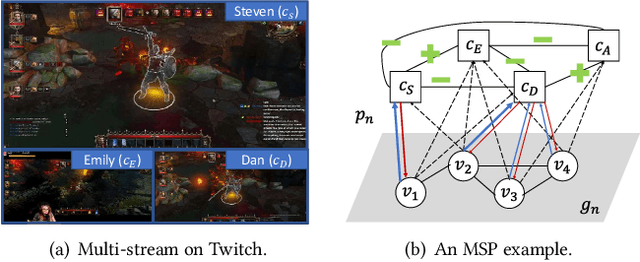

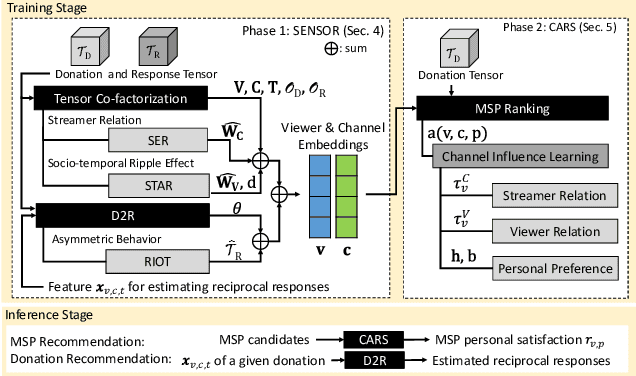

Abstract:In contrast to traditional online videos, live multi-streaming supports real-time social interactions between multiple streamers and viewers, such as donations. However, donation and multi-streaming channel recommendations are challenging due to complicated streamer and viewer relations, asymmetric communications, and the tradeoff between personal interests and group interactions. In this paper, we introduce Multi-Stream Party (MSP) and formulate a new multi-streaming recommendation problem, called Donation and MSP Recommendation (DAMRec). We propose Multi-stream Party Recommender System (MARS) to extract latent features via socio-temporal coupled donation-response tensor factorization for donation and MSP recommendations. Experimental results on Twitch and Douyu manifest that MARS significantly outperforms existing recommenders by at least 38.8% in terms of hit ratio and mean average precision.
CoachAI: A Project for Microscopic Badminton Match Data Collection and Tactical Analysis
Jul 12, 2019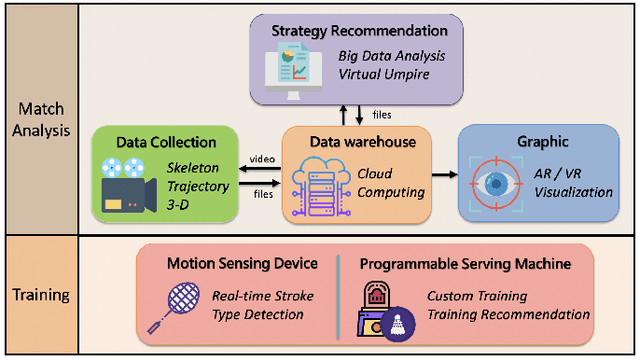
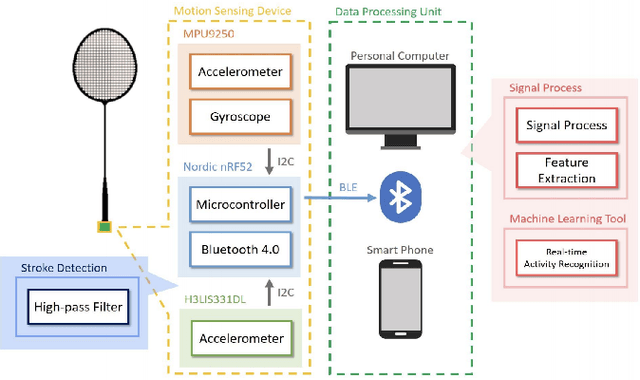
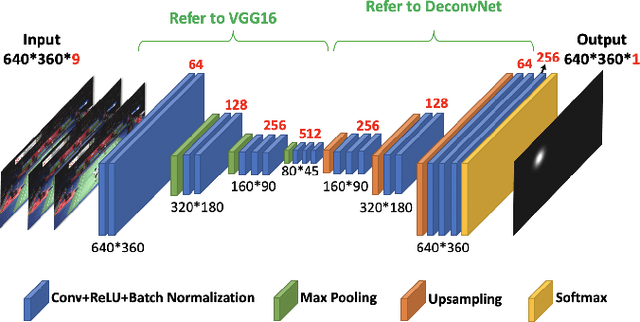
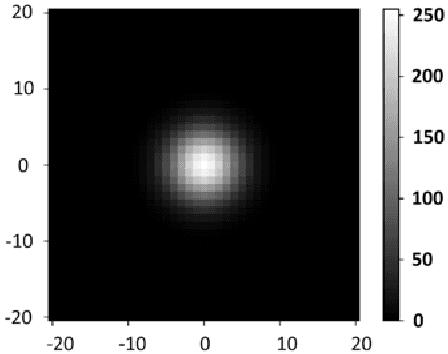
Abstract:Computer vision based object tracking has been used to annotate and augment sports video. For sports learning and training, video replay is often used in post-match review and training review for tactical analysis and movement analysis. For automatically and systematically competition data collection and tactical analysis, a project called CoachAI has been supported by the Ministry of Science and Technology, Taiwan. The proposed project also includes research of data visualization, connected training auxiliary devices, and data warehouse. Deep learning techniques will be used to develop video-based real-time microscopic competition data collection based on broadcast competition video. Machine learning techniques will be used to develop a tactical analysis. To reveal data in more understandable forms and to help in pre-match training, AR/VR techniques will be used to visualize data, tactics, and so on. In addition, training auxiliary devices including smart badminton rackets and connected serving machines will be developed based on the IoT technology to further utilize competition data and tactical data and boost training efficiency. Especially, the connected serving machines will be developed to perform specified tactics and to interact with players in their training.
 Add to Chrome
Add to Chrome Add to Firefox
Add to Firefox Add to Edge
Add to Edge